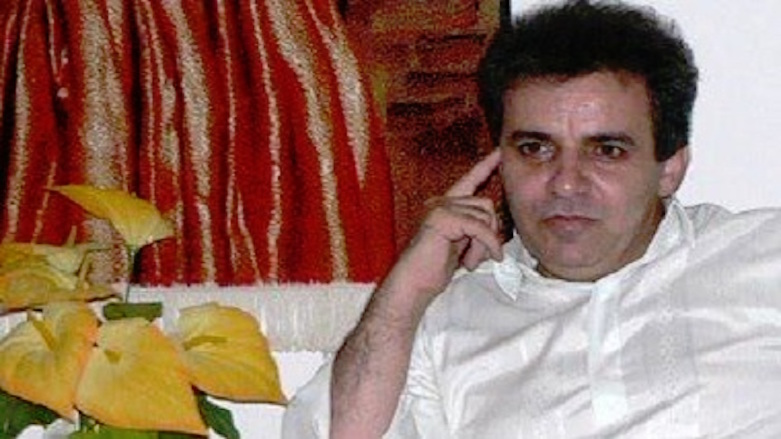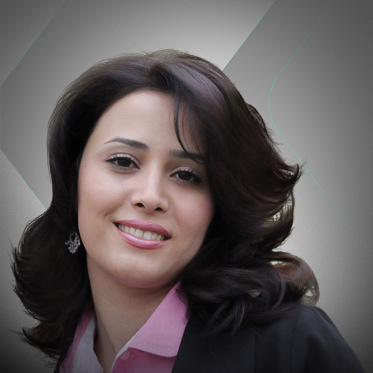Kaboudvand, chronically ill prisoner on hunger strike

LOS ANGELES, United States (Kurdistan24) – Mohammad Sediq Kaboudvand, serving an 11-year-imprisonment in Iran, has been on hunger strike for 10 days, suffering aggravated health conditions.
Kaboudvand, born in Diwandara (Divandareh), Kurdistan Province, in the northwest of Iran, was the editor of the banned weekly Payam-e mardom-e Kurdistan and the chair of the Tehran-based Kurdistan Human Rights Organization (RMMK).
When he co-founded the Kurdistan Human Rights Organization, along with other activists, Kaboudvand documented and publicized widespread human rights abuses in the Kurdish areas committed by the Islamic Republic of Iran.
He was incarcerated in 2007 for his activities.
NEW ALLEGATIONS BROUGHT AGAINST KABOUDVAND
Kaboudvand says he is on hunger strike in protest to the new accusations that have been filed against him.
Speaking to Kurdistan24 on the phone, Parinaz Hosseini, Kaboudvand's wife, said that he has recently been interrogated three times.
“First, he was interrogated for having sent a message in support of Kobani and asking Turkey to resume peace with Kurds,” Hosseini said.
“The second time for 'propaganda against the state,' and the third time for writing his dissertation on the violation of the prisoners' rights in Iran,” she said. “The third accusation comes at a time when his dissertation has not been completed yet, and his writing has focused on Turkey and minorities.”
She called on human rights organizations to stand up for justice and not to allow “an innocent man to yet again suffer for crimes he has not committed.”
DENIAL OF MEDICAL CARE
UN recently condemned Iran for denying prisoners medical attention.
Several Kurdish prisoners such as Afshin Sohrabzade, Mohammad Sediq Kaboudvand and Zeinab Jallalian suffer chronic illnesses.
Kaboudvand reportedly has suffered from heart disease, several heart attacks, and a prostate disorder. In April 2008 he suffered a stroke and was taken to a specialist for treatment.
At that time doctors announced that the prisoner needs immediate and specialized care, including heart and prostate surgery. But he has so far been denied medical care.
DOUBLE PRESSURE ON KURDISH PRISONERS
Kurds make up 10 percent of the 70 million population of Iran but they are a majority among political prisoners and are reported to receive some of the harshest treatments in prison.
Association for Human Rights in Kurdistan of Iran-Geneva (KMMK-G) reports that out of 1,152 political prisoners in Iran, 467 are Kurds.
Out of 93 prisoners sentenced for Moharebeh (enmity against God), 63 of them are Kurds.
Saman Rasoulpour, a Sweden-based Kurdish journalist and analyst told Kurdistan24, “The pressure on Kaboudvand has been extreme even though his only 'crime' has been working on human rights in Kurdistan. He is a symbol, representing Kurdistan's civil movements. That's why Iran continuously increases pressure on him.”
Rasoulpour continued, “His [Kaboudvand's] case ceased to be a legal case years ago and has turned into a revenge story of Iranian government against any Kurdish movements towards equality and justice.”
He told Kurdistan24 that the new charges brought against Kaboudvand were part of the game Iran is playing to claim that it will respond to calls for the release of political prisoners by further oppressing them.
“But the reality is that anytime there is focused national and international pressure on Iran for a specific case, the government gives in and reduces pressure on that specific case,” Rasoulpour added.
Rahman Javanmardi, a Netherlands-based Kurdish journalist also said, “Kurdish political prisoners such as Kaboudvand and Adnan Hassanpour never receive pardon although many non-Kurdish Iranian political prisoners have been released after serving a portion of their sentence.”
INTERNATIONAL APPEALS FOR KABOUDVAND'S FREEDOM
John Kirby, the spokesperson for the State Department, highlighted Mohammad Sedigh Kaboudvand's case for World Press Freedom Day in April and called on Iran to release Kaboudvand and other prisoners who have been detained “simply for exercising their right to freedom of expression.”
Because of his journalistic activities, Kaboudvand was named the international journalist of the year at the British Press Award in 2009. He has also received international recognition from organizations around the world for his commitment to human rights.
PEN Canada, Amnesty International, and the International Federation for Human Rights (FIDH), and its affiliate, the Iranian League for the Defence of Human Rights (LDDHI) have repeatedly called upon Iranian authorities to release Kaboudvand.
KURDISH HUMAN RIGHTS COALITION
The following coalition is currently working on Kaboudvand's case: Human Rights Organization of Kurdistan (HROK), Kurdish American Committee for Democracy and Human Rights in Iran (KAC4DHRI), Kurdocide Watch Chak (Eastern Kurdistan), Kurdish Women’s Rights Organization and Kurdish Human Rights Association.
They are in contact with Kaboudvand's family and the international human rights organizations, US politician, and the United Nations.
Reporting by Ava Homa
Editing by Karzan Sulaivany
